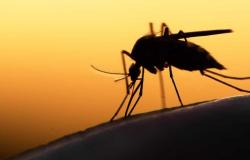Influenza and respiratory viruses usually reappear in winter. But since the start of the pandemic, the coronavirus called SARS-CoV-2 has been experiencing its “peak hours” in summer, in addition to winter. After five summers, have we understood why?
In recent months, in fact, both France during the Olympics, and Canada, the United States and the United Kingdom have seen the curve of confirmed cases start to rise again. Although we are far from the peaks of 2020 and 2021, this growth is nonetheless the opposite of what we would have expected: a respiratory virus is statistically more likely to spread when more people are in closed spaces, which happens more often when the days get colder.
One major factor seems to be the speed with which new mutations of the virus continue to emerge, the World Health Organization warned earlier this month. Our immune systems may not recognize them as the virus it already knows, and so may not activate the right antibodies. That could explain why the virus continues to circulate so much — but it doesn’t explain the summer factor.
Of course, other viruses also mutate. Any virus mutates. But not at the same rate, explains in the New Scientist Professor of Public Health Andy Pekosz of the Johns Hopkins School of Medicine in Maryland. “It often takes a few years for mutations in influenza that can evade our immunity to accumulate… But with COVID, it seems to happen more than once in a year.” As a result, other respiratory viruses may continue to circulate as much as SARS-CoV-2 in the summer, but they fly off the radar because their lower mutation rates, or their more “benign” mutations, allow our immune systems to take care of them.
Does this mean that these summer “peaks” are here to stay? Experts asked about this by the New Scientist are “unanimous” in saying that we have not known this virus long enough to make a decision. It is possible that over the years, the trend will increasingly move towards more typical outbreaks, that is, only in winter. But no one is able to say in how much time.
In theory, getting vaccinated every year, as doctors recommend for people who are most vulnerable to the flu, could speed up the disappearance of these summer “spikes.” The problem is that new versions of the vaccines usually arrive late: This spring’s were developed based on 2023 variants, which could make them less effective — giving the virus a statistical chance of continuing to spread widely.





